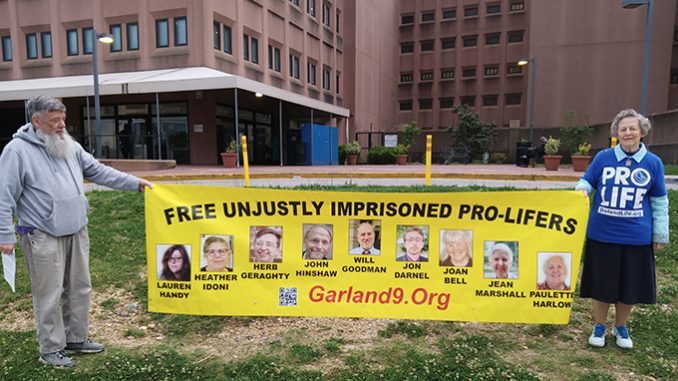(CWReport. Monica Migliorino Miller )
As behavior protected by the Constitution and regulated by statue in every state, abortion cannot be defined as “public or private injury” As we have shown, the defendants’ contention that the fetus suffers great injury has no meaning for this Court, nor does it qualify as the requisite “injury” to justify the assertion of the defense of necessity….[T]he fetus has no rights, nor does the State or any individual have an interest in protecting the continuation of fetal development. During this period, the mother’s individual rights are absolute. … The only rights involved in an abortion performed…. are the rights of the mother. . . . [As] defendants stated in their memorandum, their actions “were calculated to save the lives of these unborn children.” Defendants’ acts were intended to protect nonexistent rights and prevent the exercise of rights guaranteed by the Constitution. I was only 24 years old when I, with eleven others, stood in front of the hallway that led to the “procedure” rooms at the now closed Concord Medical Services in Chicago. This “sit-in” in defense of the unborn was organized by the late Joseph Scheidler, known as the father of pro-life activism. The year was 1978 and what would later be called the “rescue movement” was still very much in its beginning stage. We were then full of hope, believing that when we stood trial the unborn would have their day in court—and believing that standing trial was an opportunity to tell the world all the biological facts of the humanity of the unborn and be acquitted on their behalf through a “defense of necessity,” thus chipping away at the legalized abortion. While the lower court judge denied us the necessity defense, we were confident that on appeal we would prevail. In these early years of Roe v. Wade, the twelve of us could never possibly imagine that every hope that we had would be crushed by an argument presented by Concord’s attornies—the very chilling argument we heard them make to the judges of the Illinois appellate court—the very words quotes above.
Continue reading…


